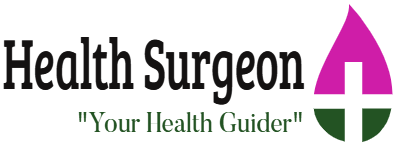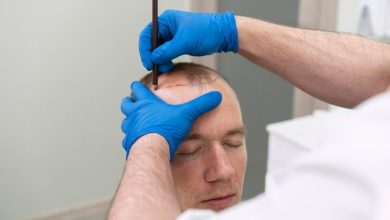6 Essential Skills to Become a Successful Nurse

Nurses play a significant role in healthcare provision. They ensure the system runs smoothly by providing patient care and support, educating the public, and assisting with surgeries. Considering their importance and a broad range of responsibilities, nurses must prepare themselves for the demands of a high-stress hospital environment by armoring themselves with various soft and hard skills. If you are a nurse or aspiring to be one, here are six skills you need to master to gain success in this field:
-
Communication Skills
As a nurse, you could have various postings. You could be working as a midwife in a birthing room, assisting in a chaotic general ward, or being part of a trauma team. No matter what duty you fill, you would be expected to accurately collect data directly from the patient and pass information back to other professionals calmly and effectively. You have to be an active listener, but more importantly, you must be a great verbal communicator. You must ensure every information and opinion you offer is easy to comprehend.
Moreover, as a nurse, one of your primary duties would be to fill in thorough records like patient documentation and treatment information. These records are not just for use within the hospital; they could be used as legal evidence in many cases. Communication skills are one of the essential nursing skills. With clearer communication skills, you can provide better quality of health to your patients. Every task will involve delicate patient circumstances and the handling of sensitive information. This leaves no room for errors. Missing any vital information or mishearing instructions can create life and death situations.
-
Decision-Making Skills
On average, nurses interact with patients more than the patients’ doctors, which strengthens nurse-patient relationships. It gives the nurses the opportunity to observe the patients more closely and be aware of any changes in their conditions. Because of this, doctors often appreciate input from the nurses and value their clinical decisions.
In emergencies and in the absence of supervision, nurses have to put their thinking caps on and make the right calls. Moreover, in most states, nurses can prescribe medications too. This authority comes with the great responsibility to make the right decisions.
For leader nurses in administration roles, decision-making skills are even more critical. They have to decide the budget and hire and distribute the workforce. They are fundamental to a direction-driven effective health sector, specially in rural areas. It is essential to understand that, as a nurse, your decisions will be pivotal to quality patient care.
-
Commitment to Lifelong Learning
The current healthcare knowledge and practices are quite different from what they were a few decades ago; they have evolved with more development and research. Likewise, the world of nursing has changed drastically and will continue to change. It is why nurses must be committed to lifelong learning and be on top of any developments in their domain. The knowledge you graduate from your nursing school with is just the start; the regular on-job learning, conferences, volunteer rounds, research, and extensive literature review make up the idea of lifelong learning.
Although nurses are not expected to know everything, as professionals in the never-stagnant healthcare world, nurses are expected to be receptive and open to learning. Your years-long experience and education are only worthy if you have learned from them, polished your critical thinking, and improved your practice by applying the gained knowledge.
-
Leadership Skills
Nursing has now evolved. Nurses don’t just assist; sometimes, they are the leaders making decisions. In many high-stress situations, you will be required to take charge and use your knowledge and expertise for immediate treatments. You might also have to guide less-experienced colleagues about the regular steps and protocol when no other leadership is available.
Many nurses fill in leadership roles too. You may have to take up a ward management duty in a rural hospital or become head of a nursing team. In these cases, you have to display assertiveness and the ability to take the initiative. With diversity in opinions and working styles, there will be times when you feel friction or conflict rise among your team members. As a leader, you might have to mediate and resolve disputes and get everyone on the team in confidence.
-
Technological Skills
Every day, new healthcare technology makes its way to the hospital. For example, many hospitals have switched from manual record keeping to Electronic Health Records (EHR). Although this digitization prevents errors by reducing the human element, it creates the need for nurses to be more tech-savvy.
Similarly, smart beds are replacing regular hospital beds. These can assist nurses in recording the vitals, patient’s weight, and movements in real-time and save the hassle of equipment set up but operating them is only for the nurses with solid technological skills. Your workplace will be surrounded by technology, from MRI or X-Ray machines to new portable monitors. Hence, it is now essential for a nurse to learn about new technology and adapt to its incorporation into their workplace.
-
Ethical Practicing Skills
Nursing isn’t a simple job; you have to face emotionally tricky workplace situations. It can be overwhelming to make decisions in some circumstances too. Nurses often find themselves torn between two moral obligations: one to the patient and the other to society. It often leads to nurses experiencing ethical conflicts. To save the nurses from ethical dilemmas, American Nurses Association has established a guide – the ethical code. This code often serves as the moral compass in times of utter confusion.
By understanding the code and applying it to daily work duties, you can make sound judgments that are best for patient care and your medical practice. Under the umbrella of ethical practicing, your discretion skills are the most important as these have a legal and ethical basis. The information you share might hurt your patient’s privacy if you neglect consent, which can go against professionalism and the law. Remember, your professional, moral, work, and practical ethics shape your reliability as a nurse.
Nurses are the heroes of the health industry, and their skills are the superpowers that enable them to provide quality healthcare. To be a successful superhero and save the patients and the healthcare industry, nurses must master many skills. By continuously learning and adapting to technology, nurses can ensure their practice and healthcare techniques are up-to-date. Lastly, assertive leadership and ethical practice can assure the nurses make the right calls.




